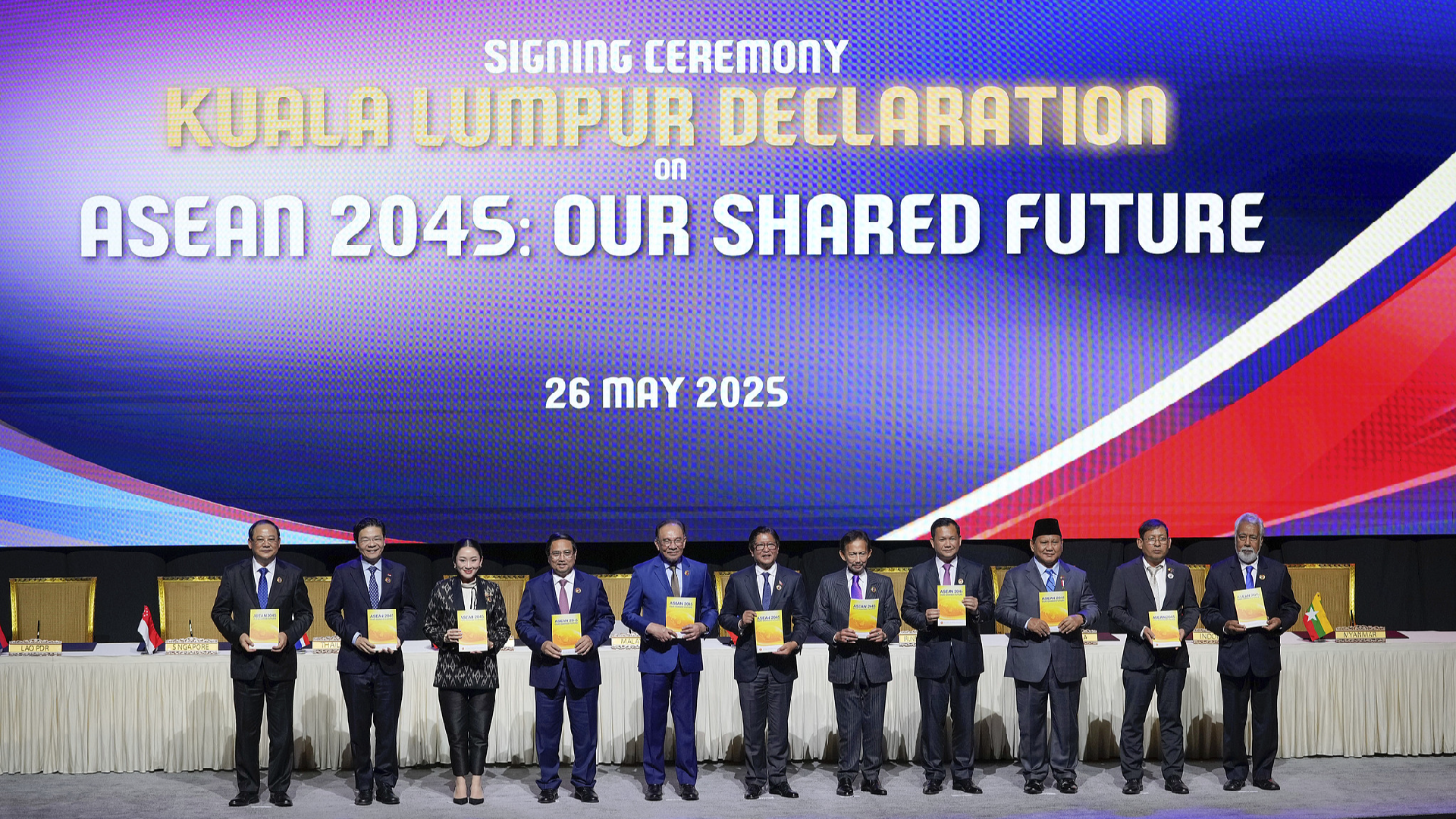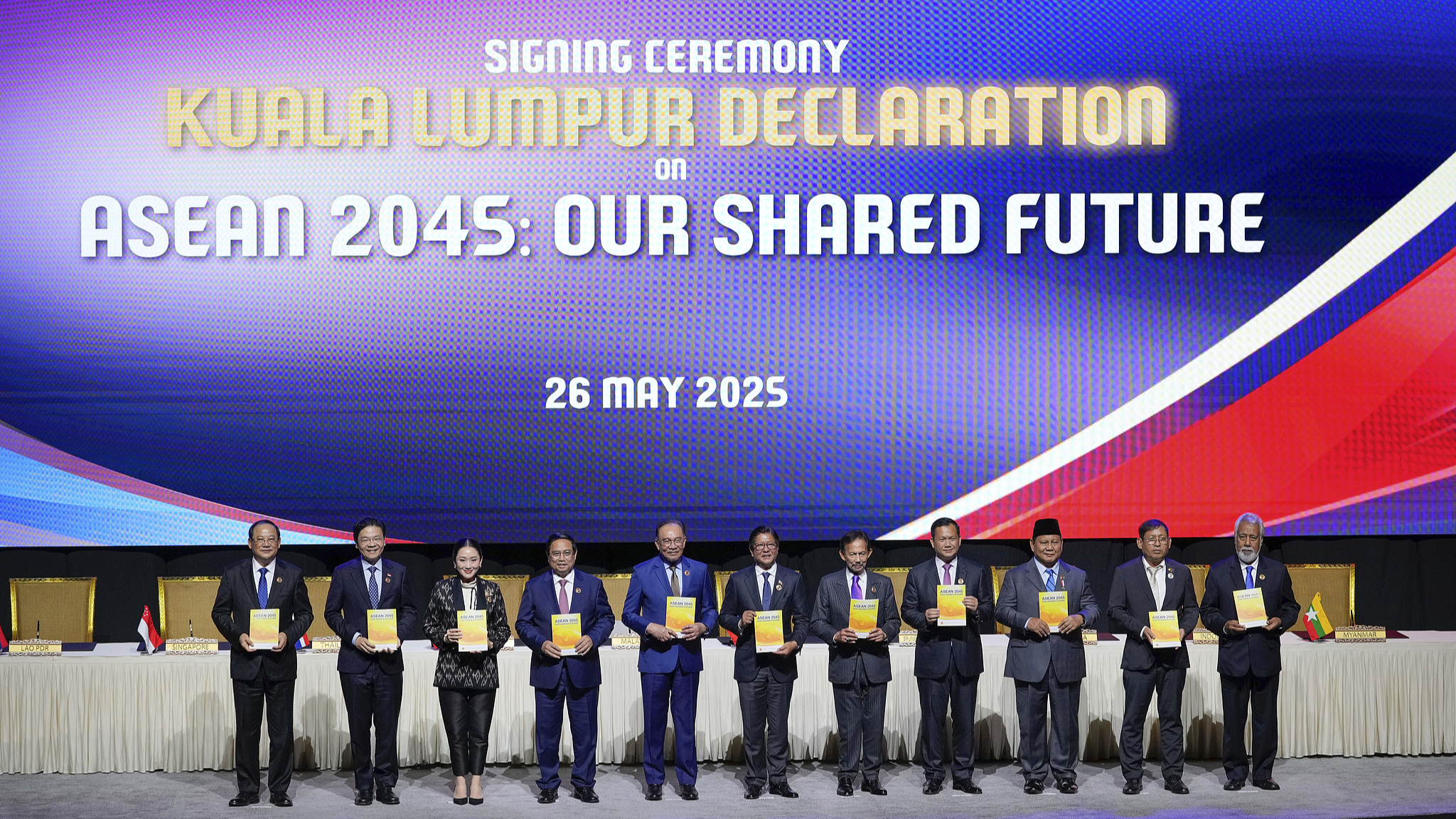ASEAN Leaders Adopt Kuala Lumpur Declaration to Chart Future of the Region for Next 20 Years
ASEAN leaders unveil the Kuala Lumpur Declaration on ASEAN 2045, charting the bloc's vision for the next two decades.


The Kuala Lumpur Declaration on ASEAN 2045 was formally unveiled on Monday, setting the course for the Association of Southeast Asian Nations (ASEAN) over the next two decades. This pivotal document was endorsed by leaders during the 46th ASEAN Summit held in Kuala Lumpur, where regional heads of state came together to chart a future focused on sustainability and inclusiveness.
Malaysian Prime Minister Anwar Ibrahim, addressing delegates after the signing ceremony, underscored the declaration’s significance as a framework that addresses emerging regional challenges while prioritizing sustainable and inclusive development. He emphasized, “The future we seek must rest on foundations of sustainability and inclusion. ASEAN's integration must be genuinely people-centered. That means closing development gaps, raising standards of living and investing in the human spirit and potential of all our citizens.”
Anwar described the document as a shared blueprint grounded in realism and mutual trust. The Kuala Lumpur Declaration brings to life the ASEAN Community Vision (ACV) 2045, a comprehensive plan combining four core pillars: political-security, economic development, socio-cultural evolution, and enhanced connectivity across the region.
ASEAN Secretary-General Kao Kim Hourn explained at a press briefing that ACV 2045 would serve as a pragmatic and strategic roadmap for the bloc, offering guidance through an uncertain global landscape. “These four strategic plans are designed to guide ASEAN on how to prioritize its work while upholding unity, solidarity and ASEAN centrality,” he stated. He also highlighted the importance of collaboration with external partners, signaling ASEAN’s openness to global cooperation.
The declaration is notable for its forward-looking stance, directly acknowledging rapid shifts in geopolitics, digitalization, demographic transformation, and climate-related risks. Emphasizing adaptability and resilience, the vision provides clarity on navigating these multifaceted challenges in the years ahead.
Malaysia’s Foreign Ministry affirmed that through the ACV 2045, ASEAN aims to transform itself into a prosperous single market characterized by a highly skilled and inclusive workforce, innovation-driven economic growth, and deep-rooted sustainability in all sectors of the value chain. Among the priorities are promoting the use of local currencies for cross-border transactions to buffer against external economic shocks, boosting disaster risk financing, and mitigating the impacts of climate change and environmental degradation.
The updated vision aspires to position ASEAN as a major global economic player, projecting the region as the world’s fourth largest economy. This ambition is anchored in sustainable growth, robust governance practices, and technological empowerment, according to officials.
Malaysia, serving as ASEAN chair for 2025, is hosting this year’s summit under the banner of “Inclusivity and Sustainability.” Established in 1967, ASEAN comprises Brunei, Cambodia, Indonesia, Laos, Malaysia, Myanmar, the Philippines, Singapore, Thailand, and Vietnam. The unveiling of the Kuala Lumpur Declaration marks a significant milestone in the grouping’s ongoing journey toward greater integration and resilience on the global stage.




